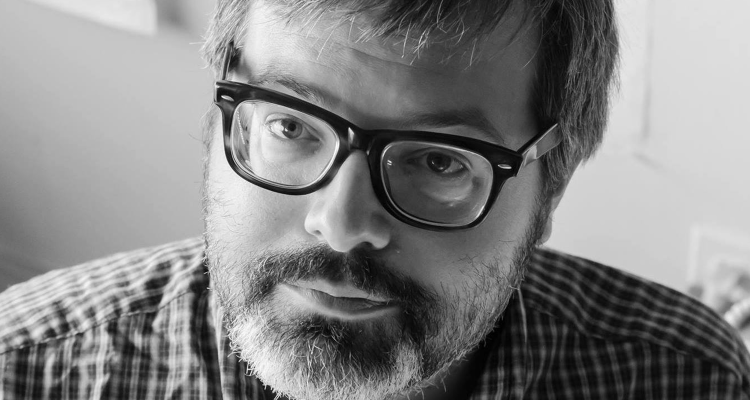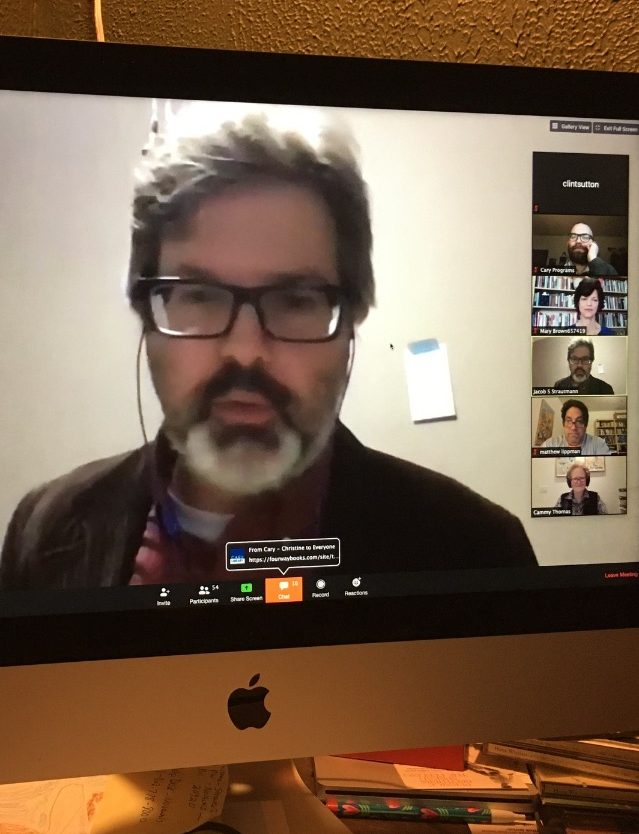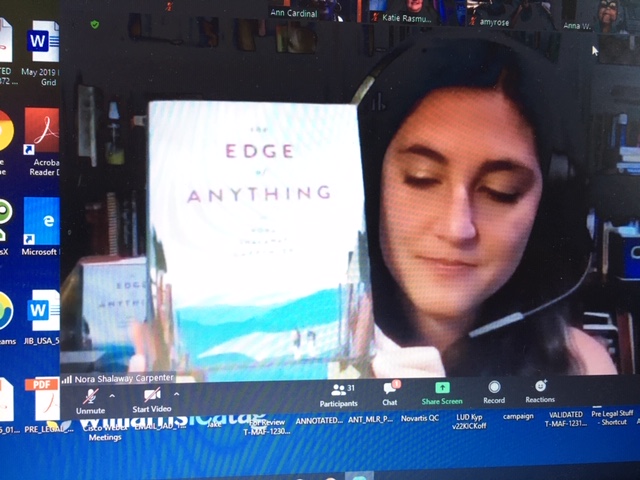Author’s note: It was a pleasure to write about two people from my small hometown — a younger schoolmate and friend, and my own brother.
Cameron, West Virginia, a tiny town about 30 miles south of Wheeling, is surrounded by rural countryside. The road between the two is known as a long and winding one by anyone who has traveled it.
The same can be said for anyone who has attempted to break into the world of publishing — it, too, is a long and winding road. Author Nora Shalaway Carpenter and poet Jacob Strautmann have traveled both roads and know them well.
Two books by the Marshall County writers hit bookshelves this past spring. Jacob’s first published collection of poems explores growing up in rural West Virginia. Nora’s is a young adult book that deals with mental health issues and the power of friendship.
The authors have a few things in common — both are Marshall County natives and both graduated from Cameron High School. They also released books right as the country was put on lockdown in March because of the coronavirus.
Jacob and Nora both left West Virginia after they obtained their undergrad degrees to pursue a higher education, but neither has forgotten their roots and where they got their start.
GROWING UP IN MARSHALL COUNTY
Nora feels very grateful for her rural childhood. Her family lived on a dirt road with 90 acres of land that she was “lucky enough to roam as a kid.”
“That instilled in me a deep respect and appreciation for nature and the environment. In my books, the setting and the natural world always play a very important part,” she said.
Nora knew she wanted to be a published writer from the time she was 8 years old when she realized it was something people could actually do.
“I’ve made up stories for as long as I could remember. For a while after high school, I convinced myself that writing wasn’t practical, and I needed to do something else. I’m grateful I found my way back.”
Nora also credits growing up in West Virginia as preparation for the “persist-till-you-make-it attitude” that is needed to break into — and survive — the world of publishing.
Coming from a small, rural town like Cameron, residents are often the butt of many small-town jokes, even from people who live only 40 minutes away in a larger town. And all West Virginians can relate to being the punchline to stereotypical jokes told in other states.
“Like so many West Virginians (and rural people in general) I got mocked a lot because of where I came from. It definitely gave me a chip on my shoulder and a burning desire to make my dreams a reality. That comes in handy in a business known for rejection and endless waiting,” Nora said.
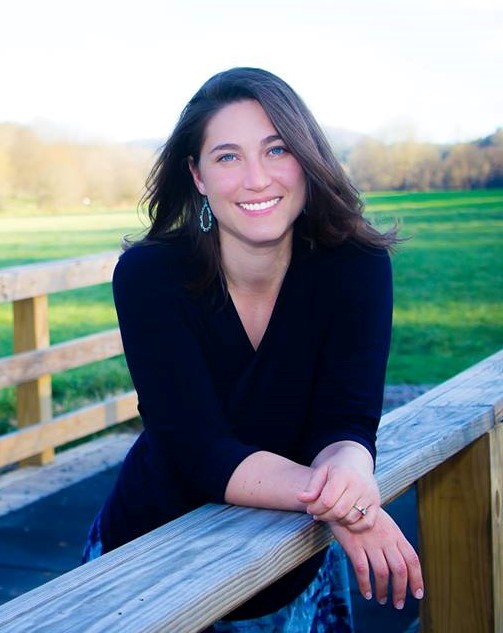
Jacob also grew up on a dirt road in the country with many acres, but he did not share the same love of the outdoors.
“As a kid, I disliked the outdoors, sports, country music, bars, hunting and fishing — all those things Marshall County does so well. But that allowed me to become passionate in niche interests. So in a way, Marshall County supported my growing allegiance to outsider interests.”
One of those outsider interests Jacob found himself gravitating toward was poetry. Science was his first love, and he held on to science as his calling until his first year of college at Wheeling Jesuit University. Then English and history came to the forefront in his studies. He enjoyed memorizing and reciting poetry, but, for the longest time, he thought of literature as “dwelling in the past, and science as dwelling in the future, and I longed for a Star Trek future.”
“While I’ve never lost my interest in cosmology and other sciences, I now give literature equal and sometimes greater weight in the realm of discovery,” he said.
Jacob left Wheeling and Cameron in 1999 to attend his first poetry workshop at Boston University. He knew he was out of his league in that first poetry workshop and that his poems weren’t hitting the mark. Over time, he eventually shared a poem about West Virginia.
“I brought in an early version of ‘Monongahela, Allegheny Coal Field,’ and the professor said the poem was doing something very different than my other attempts. It took me another 10 years to accept it, but I eventually realized that the ‘difference’ was that it was in my voice — that elusive thing young writers are looking for.”
THE BOOKS
Nora’s new book, The Edge of Anything, which recently received a starred review from Kirkus book reviews, is her first young adult book. She is the author of the children’s book, Yoga Frog, and, she is the contributing editor for the anthology, Rural Voices: 15 Authors Challenge Assumptions About Small-Town America, set to be published in October. The anthology, which includes a story by Nora, deals directly with reactions to rural stereotyping and has already been named as a Junior Library Guild Gold Standard Selection.
It is never easy for anyone to break into the publishing world, and Nora says she didn’t really know what she was getting herself into. But she knew she wasn’t happy when she wasn’t writing, so she decided to go for it.
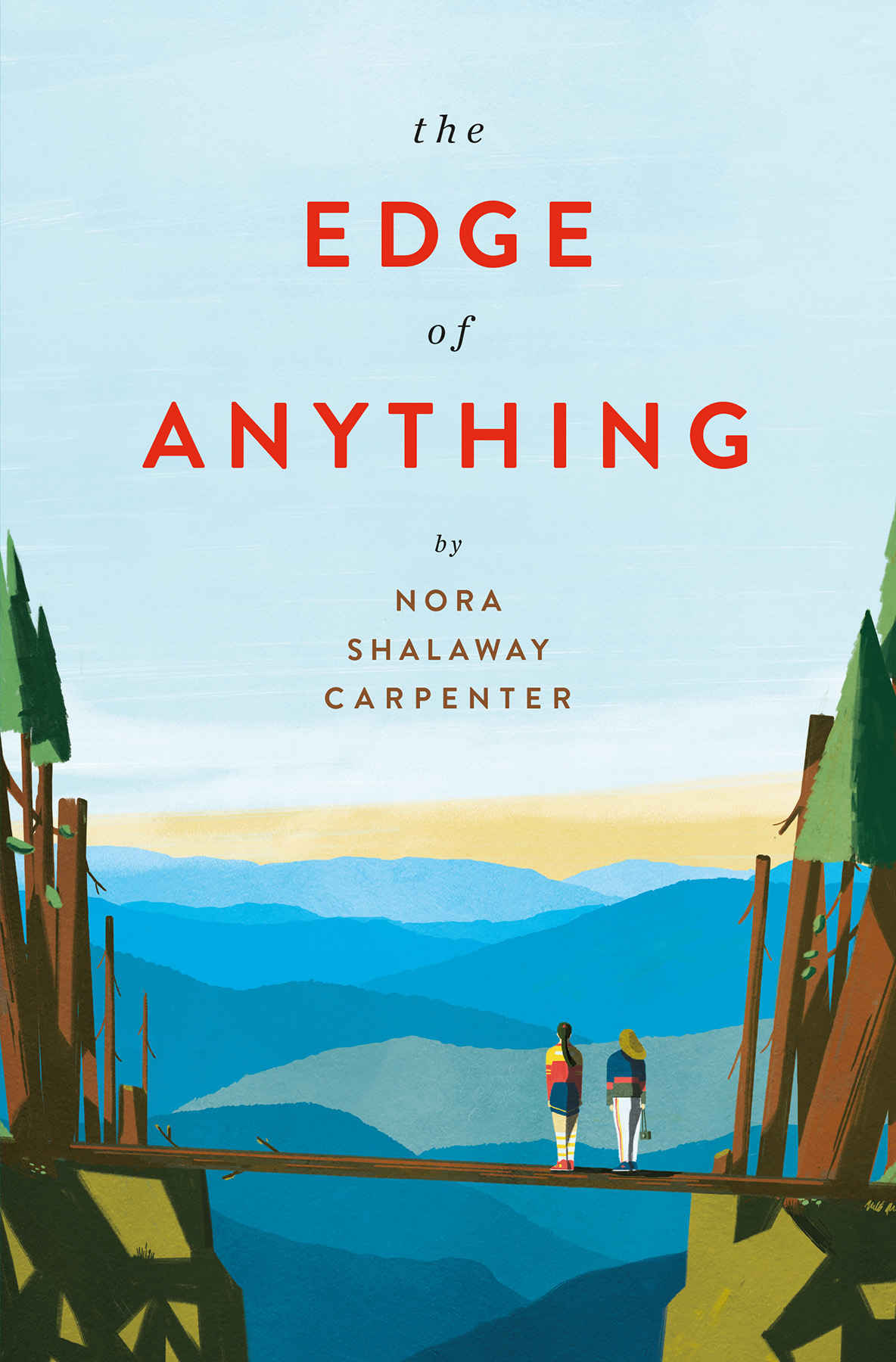
“Earning my MFA was a game-changer for me,” Nora said. “It opened so many doors for me professionally and provided me with an unbelievably supportive community of fellow writers and mentors.”
Nora is a graduate of the Vermont College of Fine Arts MFA in Writing for Children and Young Adults program. She found her agent through a classmate who thought her own agent would love Nora’s writing.
For the topic of Nora’s first novel, she also drew from personal experience — just not the personal experiences she was expecting to have. In The Edge of Anything, two teenagers are dealing with life-changing personal problems. One protagonist, Len, an unpopular student who is seen as the “weird” girl by other classmates, is starting to realize something is not quite right with her thoughts — she thinks she’s going crazy. What Len is suffering from is a severe form of Obsessive Compulsive Disorder, something Nora has suffered from as well.
“I wrote the book I wish I’d had during my own darkest days. I developed OCD during early adulthood, and I had no idea what was happening to me.” Nora described having undiagnosed OCD as a “kind of hell-on-earth experience I wish no one ever had to endure. Yet, I know lots of people do.”
In the novel, Len finds hope in an unlikely friendship with Sage, a star volleyball player who is popular, but whose life has also been turned upside down recently. Nora explains that she “wanted to create a book that presented an authentic representation of an OCD experience, but I wanted it to be much more than that, too. Specifically, the book is a deep exploration of friendship and the transformative and life-saving power of human connection.”
Along with tackling mental health disorders, The Edge of Anything also deals with the stereotypes that often run rampant in high school and beyond. The challenges that Sage and Len face are actually what bring them together — the odd girl and the popular girl find help for themselves in helping each other — two characters who wouldn’t usually seek each other’s company.
Also refreshing about Nora’s novel is there is no romance, which is a central topic in a lot of young adult novels. Excluding romance was not even a conscious decision for Nora, and it didn’t cross her mind until the rough draft was finished. However, her characters have so much going on in their lives, adding a love interest on top of it all would have been too much for them to deal with.
Nora noted that she wasn’t aware that readers searched for that genre of books — stories without romance — until a librarian friend of hers commented that now she’d have a good book to recommend to teens who asked for it.
“It makes sense. I mean, I love a good romance subplot, but sometimes I get tired of them, too,” she said.
Strautmann’s first book of poems, The Land of the Dead Is Open for Business, is a collection of poems he has been working on since his early days of graduate school. In 2018, Jacob was the recipient of the Massachusetts Cultural Council’s Artistic Fellowship after the council reviewed 15 poems from his collection and chose him over other artists.
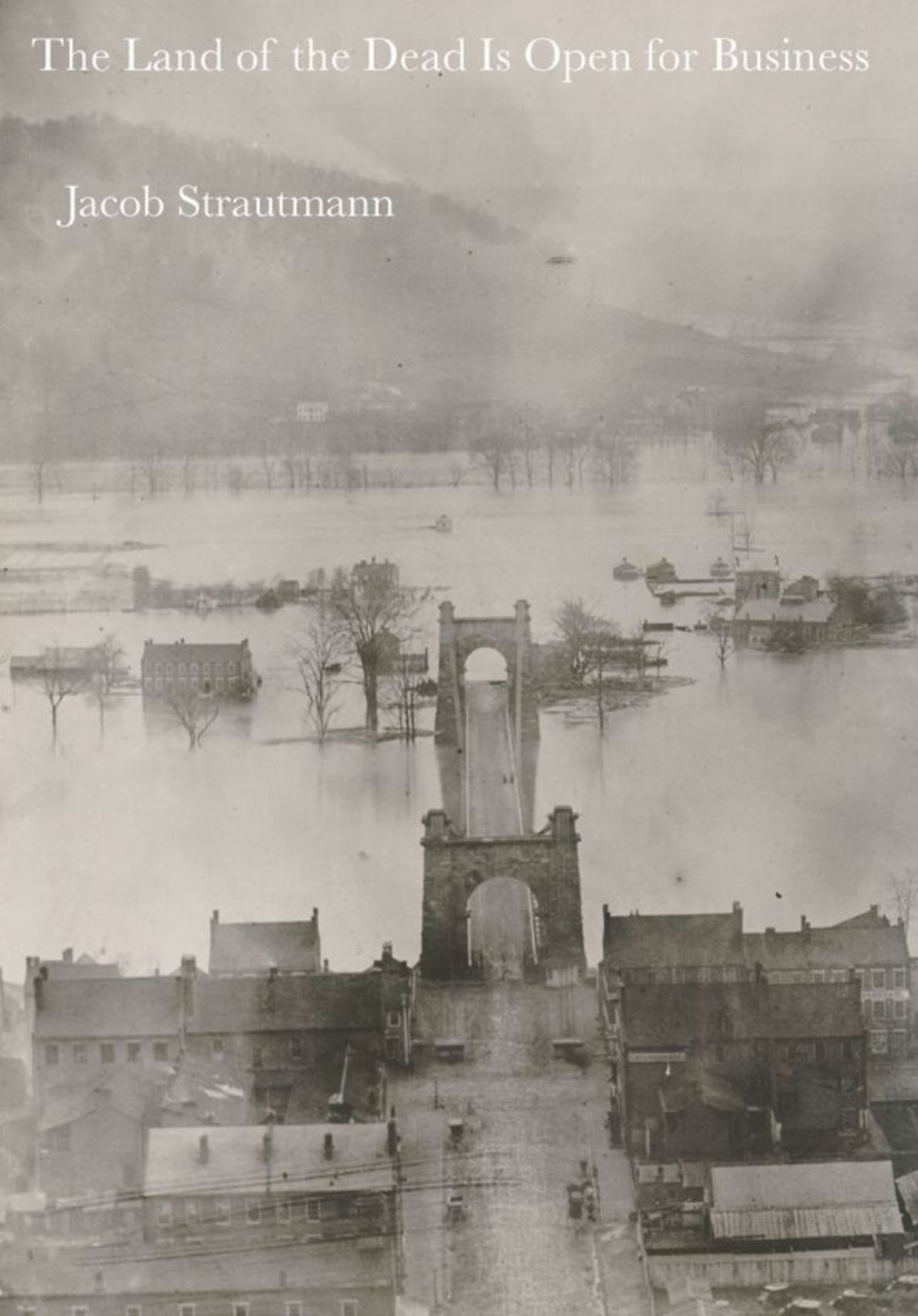
Reading through his book of poems, any Marshall County or Ohio County resident will find familiar places and names on almost every other page. Big Wheeling Creek, McColloch’s Leap, Fork Ridge, Benwood, among others, are all mentioned, and so is Don Blankenship and the Upper Big Branch Mine disaster. The destruction of West Virginia’s land and people are a common theme in his work, but when asked why he felt it was important to shed light on these topics, Jacob explains that he’s not an activist.
“But I know the artist is a witness. Why did I write about Upper Big Branch, Sago Mine, mountain top removal, the Marcellus shale fracking gold rush? Because they take your breath away. How can these things be?”
As more of an outsider to the state now, when Jacob does come to visit, common West Virginia scenes stand out to him a little more clearly than perhaps they do for those of us who experience it every day — such as sharing the roads with giant water trucks owned by the gas company or the destruction of the beautiful hills by one more pipeline. When Jake found his subject for many of his poems, he also found that he was angry about his home state, and he wanted to attend to that anger.
“Maybe it was homesickness. But another half-decade later, when I pulled my first manuscript together, I found I had something more cohesive if I jettisoned nearly all of the poems that weren’t West Virginia in origin. Since the book was finalized, I’ve been allowing myself to write with no concern for subject or form, and still, every fifth poem seems to have West Virginia roots. I really don’t know how far I can follow that thread, but writing is a form of memory.”
Not every poem in The Land of the Dead Is Open for Business tackles tragedy or hardships. Jacob pays homage to former West Virginia poet laureate Irene McKinney, who he once saw speak at the Moundsville-Marshall County Public Library, in “I Dream I Meet Irene McKinney at the Ruined House of the Photographer.” On the surface, the poem “Mother’s Day” is a meditation on the simple task of peeling and boiling potatoes for a meal, and in “The Leap,” Jake recounts an experience of his youth when he was thrown from a horse with his cousin.
Jake’s personal favorite poem in his book is “The Gift” — a poem that begins with the baying of dogs on a hunt near Wheeling Creek. “No one ever gravitated to publishing it, but it has all the things I was wrestling with in the book in one compressed space. First, everything in it is unornamented memory, it all happens in Marshall County, West Virginia, and follows a story my late neighbor Richard Fitszimmons told me about the loss of his friend. It has the land itself possessing the boy inside the poem.”
As far as getting published, it took Jake 17 years to build his book of poetry and another four years to finalize it with his press. “I’m a fast writer but a slow reviser. But I think that carefulness is true of a lot of first books. I’d like to imagine I’m starting to see the boundaries of a second book already. I expect another five years will see it finished.”
PANDEMIC AND PROMOTION
Nora’s and Jacob’s books were released right as the pandemic hit and right as they were about to embark on promoting their works with public readings and events. This brought about frustrations and challenges, but also some unexpected support.
Jacob was able to get a reading in at a local bookstore right before the country went on lockdown, but his scheduled appearance to speak on a panel at the annual Association of Writers and Writing Programs (AWP) conference in Texas was canceled. “I lost all but one of my booked readings, but, on the bright side, the Zoom readings I’ve had have been really well-attended (including some family and friends from West Virginia) and I have the artifact of those readings recorded. Book sales may slump, but my press is heroically working to keep its writers out in the public eye. I can’t thank them enough.”
Jacob was asked to read a poem online by the West Virginia Humanities Council for the series, “Poetry During a Time of Crisis: WV Poets on Community, Resilience and the Power of the Arts.”
He also did an interview with fellow Bostonian Nate Tristam for the podcast series titled “How Did I Get Here?” Jacob suffered disappointments, of course, with not being able to travel to promote his book, but as he points out, “Poetry has always been lucky to be unfettered by the marketplace. Poetry isn’t a money-maker, so a lockdown isn’t the threat it might be to a blockbuster.”
Nora had to change everything scheduled for her book release in what seemed like the blink of an eye. “One minute I had a book tour and over 14 live events scheduled, including a launch party at my local bookstore, signings and presentations at national conferences, and school visits. The next day everything was canceled. It was a rough blow.”
But Nora has tried to put everything in perspective and has had many online events, too. “Luckily, I’m part of a fantastic debut group, and sharing experiences with other debut authors going through the same thing was so helpful. And the writing and reading community really came to our aid.”
Nora’s good friend and USA Today best-selling author Kelly Anne Blount hosted an Instagram Live launch party for her where people joined from around the U.S. and in other countries as well. She has been able to participate in several virtual festivals and online panels, and even got to lead some middle grade writing workshops via Zoom. She hears often from her readers, thanks to social media.
“Even if it’s not anything like I imagined, the whole experience is still a dream come true. Knowing that my book has positively impacted and resonated with readers — that’s the best thing an author can imagine.”
Coming from the same small town and rural upbringing in Cameron, West Virginia, to facing the challenge of having books released in the same year during a once-in-a-lifetime pandemic, Nora and Jacob continue to travel a long and winding road together.
Their hard work and persistence that began in West Virginia helped them become the published authors they are today. The small town of Cameron is proud to add them to their history and looks forward to what they will accomplish in the years to come.
Nora Shalaway lives in North Carolina with her husband and her three children. You can purchase The Edge of Anything at runningpress.com.
Jacob Strautmann lives in Massachusetts with his wife, poet Valerie Duff, and their two children. You can purchase The Land of the Dead Is Open for Business at fourwaybooks.com.
• Kelly Strautmann lives out in the country of Cameron, West Virginia, and proofreads in the city of Wheeling. She has a supportive and talented husband and two ridiculous daughters who keep her busy and full of love.


